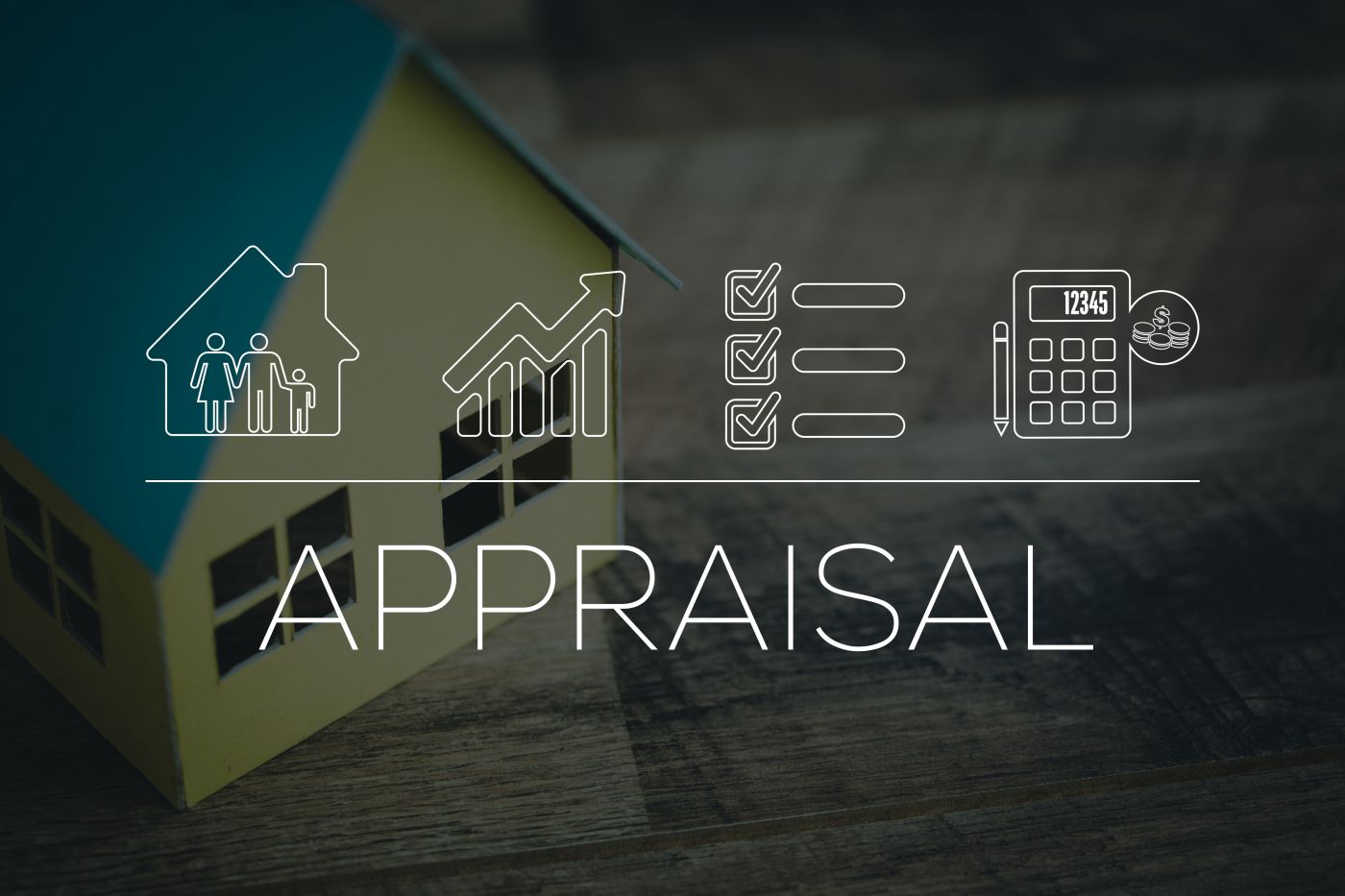
One of the most common issues encountered by property tax attorneys involves clients being blindsided by inflated property tax bills caused by incorrect appraisals. Whether you're a homeowner or a commercial property investor, it’s essential to understand how assessments are calculated
At Michael Saegert, Attorney at Law, we help clients in Texas with a variety of property tax issues. Here, we’ll walk you through how property appraisals affect your tax obligations, how incorrect valuations occur, the consequences they can bring, and what legal remedies may be available to protect your rights and finances.
How Property Tax Is Calculated
At the heart of the equation used by most taxing authorities to formulate tax bills lies the assessed value of your property, which is typically derived from an appraisal conducted by a local appraisal district. This appraisal estimates your property’s fair market value based on criteria such as:
Location
Property size
Age and condition
Comparable sales in the area
Improvements or renovations
Construction labor and material costs
After establishing the market value, local jurisdictions may adjust the valuation to account for appraisal value limitations (for example, the 10% cap rate or 20% circuit breaker) to determine the assessed value. This figure is then multiplied by your area's tax rate to calculate your final bill. Sounds simple, right? Unfortunately, that simplicity ends when the appraisal doesn’t reflect reality.
What Is an Incorrect Appraisal?
An incorrect appraisal occurs when the assessed value of your property doesn’t align with its true fair market value. Many property owners are unaware that such errors aren’t only common but also frequently go unchallenged. Understanding the causes behind these misvaluations is the first step toward protecting your financial interests. These errors can occur due to:
Outdated or inaccurate sales comparisons
Misclassification of the property type
Overlooking property damage or depreciation
Data entry mistakes (such as incorrect square footage, property classification, etc.)
Failure to adjust for unique property features
Inconsistent assessment methods across neighborhoods
Incorrect appraisals can lead to overassessments, where your property is valued higher than it should be, or underassessments, which may seem beneficial at first but could invite scrutiny or penalties if left uncorrected. A skilled property tax attorney can help you determine if you’ve been provided with an incorrect appraisal.
How Overassessments Raise Your Property Tax Bill
When your property is overappraised, your assessed value increases, and so does your tax bill. You end up paying taxes on value that doesn’t exist. Over time, this overpayment can have a ripple effect on your household or business budget, adding up to hundreds or thousands of dollars in the long run.
Imagine your property is worth $350,000, but it's incorrectly appraised at $425,000. With a tax rate of 2%, your annual bill jumps from $7,000 to $8,500 - a $1,500 increase per year based on a mistake. Now multiply that over a decade. That’s $15,000 in excess taxes, and that’s without accounting for future tax hikes based on that inflated base.
While the most obvious impact of an incorrect appraisal is a higher property tax bill, its effects often extend much further, affecting not only property owners but also potential buyers, tenants, and even the broader local economy. These less visible consequences can be just as damaging over time, especially if the appraisal error goes uncorrected for years.
Reduced Property Marketability
When it comes time to sell, a property's tax history becomes a key consideration for prospective buyers. If your home or commercial property has a record of unusually high tax bills, it could raise red flags, even if the physical condition and asking price are competitive. In some cases, buyers may demand a price reduction to offset the anticipated higher tax obligation.
Furthermore, real estate agents often factor in annual taxes when estimating the affordability of properties for their clients. A property that appears more expensive to carry, due solely to a flawed appraisal, could be filtered out of buyer searches altogether, resulting in less interest and a longer time on the market for sellers.
Impact on Renters
The effects of incorrect appraisals don’t stop with property owners; they also extend to renters, who may bear the indirect costs. Many landlords pass on tax increases to tenants through rent hikes, particularly in commercial leases that include tax escalation clauses or in residential markets where demand remains high.
In residential communities, persistent overvaluation can contribute to rising rents, displacement, and greater housing instability. Over time, this dynamic may erode community diversity and affordability, as tenants are forced to relocate to lower-cost areas. Vacancy rates may also rise as rent levels outpace market expectations, creating a cascading effect on property owners.
Legal Remedies and Appeals
This is where a property tax attorney can play a critical role. The law provides avenues for challenging incorrect appraisals, but the process can be time-sensitive and nuanced. In many jurisdictions, property owners can request a review before attending a formal appeal. This typically involvess submitting documentation like:
Independent appraisals
Photographs of the property
Comparable property sales data
Repair estimates
This step is crucial because it may resolve the issue without requiring further action. A successful informal review can quickly correct the valuation, preventing you from paying excess taxes in the upcoming billing cycle. It also provides an opportunity to clarify any discrepancies directly with the appraisal district before the situation escalates.
Lodge a Formal Appeal
If the informal review fails to produce a fair outcome, your next step is to continue with a formal appeal. This stage involves a more structured legal approach and adherence to procedural rules, which can be difficult without professional guidance. A property tax attorney can be invaluable at this point, helping you manage the appeals process with precision and strategy. They can:
Draft and file the necessary documents
Gather and present evidence (appraisals, comps, etc.)
Represent you at hearings
Cross-examine the assessor's evidence
Negotiate settlements if appropriate
This phase isn’t just about presenting evidence, but it's about building a persuasive case and understanding how to apply local laws, precedents, and valuation standards in your favor. Working with a knowledgeable attorney makes sure that your appeal is filed on time, your evidence is well-prepared, and your case is presented effectively.
Appeal to a Higher Court
If the local review board denies your appeal or doesn’t provide sufficient relief, you may have the right to appeal to state tax courts or even higher judicial bodies. At this stage, your case may move from an administrative process to legal litigation, where formal court procedures and legal arguments take precedence.
Appealing to a higher court can involve presenting your case before a judge, which may include challenging the decisions made by the local board or arguing that the assessment wasn’t in compliance with the law. This process often requires advanced knowledge of tax law, courtroom procedures, and a deeper understanding of how legal precedents can influence the outcome.
As such, having an experienced property tax attorney by your side is essential to make sure that your rights are fully protected as you move forward with your case. If you’re in this situation, contact our firm at Michael Saegert, Attorney at Law. We have the experience you need to address your incorrect appraisal.
Talk to an Experienced Property Tax Attorney
Property taxes are one of the largest recurring expenses for homeowners and investors alike. An incorrect appraisal may seem like a minor error, but left unchallenged, it can have significant financial consequences year after year. At Michael Saegert, Attorney at Law, we provide legal assistance to Houston, Texas, as well as clients throughout the state of Texas. If you believe your property appraisal is incorrect, contact us today to discuss your case.


